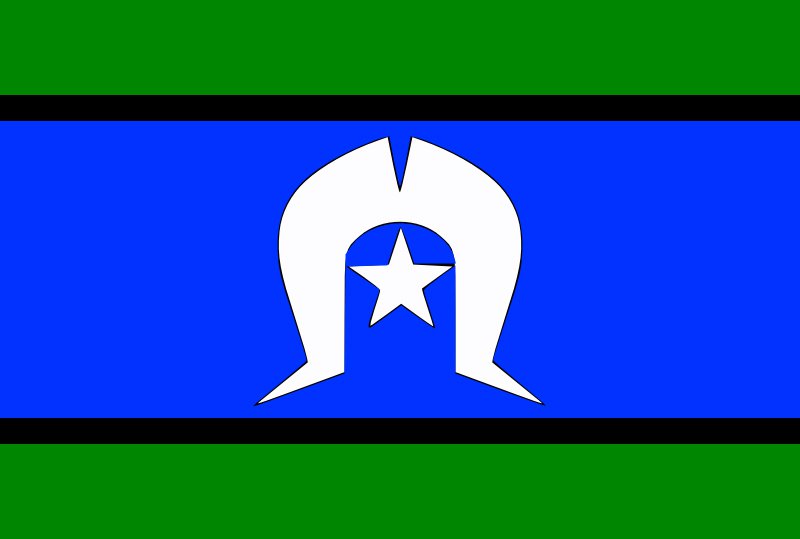BSB60420 Advanced Diploma of Leadership and Management
Leadership And Management Course
Overview
This qualification reflects the role of individuals who apply specialised knowledge and skills, together with experience in leadership and management, across a range of enterprise and industry contexts.
Individuals at this level use initiative and judgement to plan and implement a range of leadership and management functions, with accountability for personal and team outcomes within broad parameters.
They use cognitive and communication skills to identify, analyse and synthesise information from a variety of sources and transfer their knowledge to others, and creative or conceptual skills to express ideas and perspectives or respond to complex problems.
Course Details
BSB60420 Advanced Diploma of Leadership and Management (Release 1.0)
Click for Details
The BSB60420 Advanced Diploma of Leadership and Management requires the successful completion of five (5) core units and five (5) elective units.
Electives for this qualification have been chosen by Australian Federation College to ensure that students achieve a broad range of skills and knowledge in leadership and management. The latest release of the qualification and packaging rules can be found at the following link:
Click Here For Details
Target groups for the BSB60420 Advanced Diploma of Leadership and Management are international students who are: Have completed a diploma or advanced diploma from the BSB Training Package and seeking pathway to higher-level qualifications.
- Have two years’ equivalent full-time relevant workplace experience in an operational or leadership role in an enterprise and seeking to further career prospects.
Characteristics of the target group are as follows: International students from various countries who are seeking to further their skills and knowledge in the leadership and management area to progress their career prospects or study pathways. Typically, these students are likely to have some work experience and are between 20 – 35 years. Students may be onshore students currently based in Australia or offshore students applying from overseas. Most students speak English as a second language and must satisfy English language proficiency in order to successfully enroll into the course. Credit and/or RPL can be provided for those with existing skills and knowledge allowing such students to complete the course in a shorter timeframe.
This course is delivered via classroom based training and assessment at Level 1, 126 Charles Street, Launceston TAS 7250 and Level 5, 250 Collins St, Melbourne, Victoria 3000, Australia.
Weekly scheduled face-to-face class hours for attendance at Australian Federation College is 20 hours.
Launceston Campus: Level 1, 126 Charles St, Launceston, Tasmania 7250, Australia.
Melbourne Campus: Level 5, 250 Collins St, Melbourne, Victoria 3000, Australia.
This course is delivered over 52 weeks comprising of:
-Four (4) terms of 10 weeks each (40 weeks of training).
-Holiday breaks amounting to 12 weeks.
This course is offered on the following days and times subject to enrolment of students:
Shift 1:
Monday and Tuesday: 8:15 am – 5:00 pm
Friday: 8:15 am – 12.30 pm
Shift 2:
Wednesday and Thursday: 8:15 am – 5.00 pm
Friday: 12:45 pm – 05:00 pm
Shift 3:
Monday – Friday: 5.30 pm – 9.45 pm
Students will be advised of the timing prior commencement of their term.
The costs for this course are as follows:
- Enrolment Fee: AUD 250 (non-refundable)
- Material fee: AUD 400
- Tuition Fees: AUD 11,800
Course fees do not include laptops, computer software or textbooks, which are to be purchased at the student’s own cost and approximate costs for these are listed in resources requirements. Australian Federation College reserves the right to vary Tuition Fees and/or Material Fees time to time.
Australian Federation College has the following entry requirements. You must:
- Be at least 18 years of age at commencement of course;
- Have completed a Diploma or Advanced Diploma from the BSB Training Package (current or superseded equivalent versions) such as BSB50420; or have two years’ equivalent full-time work experience in an operational or leadership role in an enterprise.;
- Participate in a course entry interview to determine suitability for the course and student needs;
- Meet Australian student visa subclass 500 requirements;
- Have an IELTS* score of 6 (test results must be no more than 2 years old).
English language competence can also be demonstrated through documented evidence of any of the following:
- Educated for at least 5 years in an English-speaking country where the medium of instructions was in English; or
- Completed at least a Certificate IV level course in an Australian RTO.
*Note that other English language tests such as PTE and TOEFL can be accepted. Students are required to provide their results so that Australian Federation College can confirm they are equivalent to IELTS 6. Refer to ECT for further guidance.
Job roles and titles vary across different industry sectors. Potential employment options are as a senior Manager in a range of industry areas including:
- General Manager
- Area Manager
- Regional Manager
Students who complete this course may wish to continue their education into higher education qualifications in business or management.
Students may apply for recognition of existing qualifications or skills, knowledge and experience (credit transfer or recognition of prior learning) as per the information included in our International Student Handbook, which is available at www.afcollege.edu.au.
For international students, the granting of course credit may affect course fees as well as the duration of the course. The result of an application for credit and any changes to fees or course duration will be advised to students in writing. If course credit is granted following issuance of the Confirmation of Enrolment, students will receive a new Confirmation of Enrolment showing a reduced duration.
There are no exit points from the course that provide vocational or educational outcomes or a full qualification. Students have the opportunity to exit the program prior to completion at any stage.
Students will be issued with a Statement of Attainment upon withdrawal for all units of competency successfully completed in partial completion of the course. International students who exit course without completion may be reported to Department of Home Affairs, which may affect their visa.
An Intervention Strategy is a plan of action that anticipates barriers and resources in relation to achieving a specific objective.
Australian Federation College endeavours to anticipate students’ needs and implement a range of intervention strategies. Resources and facilities provide students with options to complete each unit of competency.
International students’ Course Progress Monitoring and Attendance Monitoring Policy and Procedures will be adhered to.
| CODE | TITLE |
|---|---|
| CORE | |
| BSBCRT611 | Apply critical thinking for complex problem solving |
| BSBLDR601 | Lead and manage organisational change |
| BSBLDR602 | Provide leadership across the organisation |
| BSBOPS601 | Develop and implement a business plan |
| BSBSTR601 | Manage innovation and continuous improvement |
| ELECTIVE | |
| BSBINS601 | Manage knowledge and information |
| BSBSUS601 | Lead corporate social responsibility |
| BSBSTR602 | Develop organisational strategies |
| BSBHRM614 | Contribute to strategic workforce planning |
| BSBPEF501 | Manage personal and professional development |
Assessment Overview
Assessment will occur through a variety of methods, including projects incorporating role-plays, presentations, report, portfolios, case studies and short answer questions.
Assessment conditions will ensure a simulated workplace environment.
Assessment tasks:
• Reflect real life work tasks.
• Are required to be performed within industry standard timeframes as specified by assessors in relation to each task.
• Are assessed using assessment criteria that relate to the quality of work expected by the industry.
• Are performed to industry safety requirements as relevant.
• Utilise authentic workplace documentation.
• Require students to work with others as part of a team.
• Require students to plan and prioritise competing work tasks.
• Involve the use of standard, workplace equipment such as computers and software.
• Ensure that students are required to consider workplace constraints such as time and budgets.
- Student Assessment Tasks:There is one for each unit of competency that includes instructions to students about each of their assessments. It also includes an assessment plan where students can record the due dates of each task and an Assessment Task Cover Sheet that must be completed for each Assessment submission.
- Other documents specific to the workplace simulation task requirements are also included with the assessment tasks. These include document templates and simulated workplace policies and procedures and are described in the student and assessor instructions as relevant.
Each assessment task will be given an outcome of either Satisfactory (S) or Not Satisfactory (NS). Students must complete all tasks for a unit satisfactorily to achieve an overall outcome of Competent (C) for the unit. If one or more of the tasks are assessed as Not Satisfactory, they will be given an outcome for the unit of Not Yet Competent (NYC).
The student can have a total of 3 attempts to complete each task and achieve a ‘Satisfactory’ outcome (noting that the third attempt is chargeable as per the fees and refunds policy). If, after the third attempt, the student is still assessed as Not Satisfactory for a task, they will need to re-enrol in the unit.
Students can make an appeal against any assessment decision by following the Complaints and Appeals Policy outlined in the Student Handbook.
Appeals will be dealt with following the Complaints and Appeals Procedure.


Related Courses

BSB50420 Diploma of Leadership and Management
This qualification reflects the role of individuals who apply knowledge, practical skills and experience in leadership and management across a range of enterprise and industry contexts.


